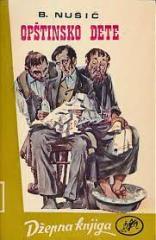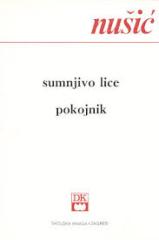Branislav Nušić
Serbian writer (Belgrade, October 20, 1864 – Belgrade, January 19, 1938), completed law studies at the Great School in Belgrade (1887). Participated in the Serbo-Bulgarian War. He was sentenced to two years in prison for a satirical poem against the Obrenović regime (Dva raba, 1887). After the pardon, served in the consulates of the Kingdom of Serbia; from 1900 he was the director of theaters in Belgrade, Novi Sad, Skopje and Sarajevo. Collaborated in periodicals (had a column in Politika under the pseudonym Ben Akiba). Continuing in the tradition of J. Sterija Popović, he wrote satirical comedies (Narodni prječet, 1883; Sumnjivo lice, 1888; Protekcija, 1889), in which he depicted Serbian civil society at the turn of the 19th century. in the 20th century. Historical and romantic dramas (Knez Ivo od Semberije, 1900; Hadži Loja, 1908) also had stage success. He expressed his anti-war sentiments in the collection Tales of a Corporal (1886), the play Velika nedelja (1920) and the memoir Nineteen Fifteen (1921). He published the humorous novel Opštinasko dete (1902), the novel for children Hajduci (1934) and the humorous Autobiography (1924). Towards the end of his life, he returned to comedy (The Lady Minister, 1929; The Grieving Family, 1934; The Deceased, 1937; Vlast, unfinished); with spontaneous jokes and witty dialogues, as well as satirical portrayal of characters, sharp criticism of social deformations and skillful construction of plots, he gained wide and lasting popularity among the theater audience. After the play It Had to Be (HNK, 1901), several of his works were performed on Croatian stages.
Titles in our offer
Opštinsko dete
Sumnjivo lice / Pokojnik
In the comedy "Suspicious Face" Nušić makes fun of society at that time with all the flaws he sees in the government under the rule of the Obrenović dynasty. The comedy "Deceased" is the last comedy written by Nušić at the age of 70, with a similar theme.

